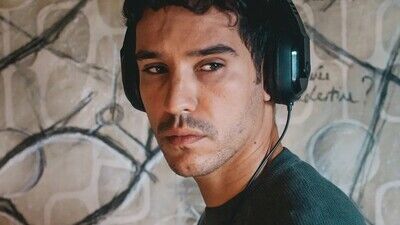Set against the steadily revving engines and propulsive forward motion of the French motocross scene, Antoine Chevrollier’s feature debut “Block Pass” is a poignant and painful coming-of-age story about two young men whose friendship is tested by circumstances that complicate their lives in a rural French suburb.
Both mechanic Willy (Sayyid El Alami) and competitive motocross racer Jojo (Amaury Foucher) are reaching that point in their teenage years, with final exams coming up, where things start to change. Accustomed to spending days at the La Pampa training grounds their fathers founded together and their nights hanging around with friends who have few ambitions beyond shooting off guns and sneaking into the local pool, Willy and Jojo are bonded as well by the burdens they’ve come to bear in early adulthood. Still mourning the death of his father a decade prior, Willy struggles to accept that his mother (Florence Janas) is ready to move on with her new boyfriend (Mathieu Demy). Jojo is gay, though he conceals this fact from his hard-driving father (Damien Bonnard), who’s consumed by preparing him to win a championship title.
Of course, Jojo’s secret eventually gets out, and Chevrollier (who wrote the script with Berenice Bocquillon and Faiza Guene) is unflinching in his portrayal of how a small town’s prejudices can inflict irreversible damage on a young person’s sense of self. In the aftermath of this painful revelation, “Block Pass” feels somewhat adrift, gathering less steam than it should as Willy finds himself caught between racing at the track and charting a less fixed path.
Two years ago, Lola Quivoron’s “Rodeo” stormed Cannes’ Un Certain Regard section and won its “Coup de Cœur” prize (literally, a “blow to the heart”); set within France’s urban motocross culture, it used the scene’s adrenalized, high-testosterone environments as the backdrop to its female protagonist’s allegorical rite of passage. Chevrollier’s film makes for a thought-provoking double bill with “Rodeo,” capturing the masculine energy of motocross as an outlet for youthful abandon that can just as quickly turn fatal or constrictive. El Alami and Foucher, in charismatic lead performances, embody that contradiction without making their characters feel anything less than authentic in their shared, self-destructive drive to rebel.

